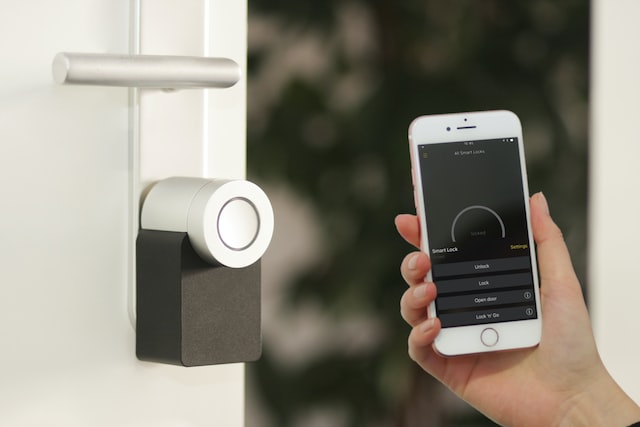Best Home Security Systems

Home security helps people protect their families, belongings, and investments. The best home security systems give the person buying them more power—since many of them can be controlled and monitored from a central app on a smartphone or tablet. Many home security products are compatible with smart-home assistants like Alexa, Google Assistant, and Siri, so people can use their voices to control them. Some systems don’t even need to be set up by a professional, while others can be set up by a professional or by the person who bought them. In the past few years, home security prices have decreased as more competitors enter the market and more advanced technologies become available at lower prices.
Doorbell cameras, indoor and outdoor security cameras, motion sensors, intelligent detectors, and smart alarms are all essential components of a modern home security system. Choosing the right one isn’t just about the technology it uses but also the company that makes it. Home security brands you can trust will have better products, apps, security features, and monitoring services. Ultimately, it’s worth it for customers to spend money on the right home security system for their needs.
Tips for Choosing the Best Home Security System
When shopping for a home security system, consumers should take into account not just the upfront cost but also the installation process, the types of technology included, the monthly monitoring or subscription fees, and any other fees or guarantees associated with the system. Each of these things will be looked at in more depth below.
Costs and Fees
Most home security systems have a base cost for the equipment and a monthly cost for monitoring or subscription fees. Some systems also charge for professional installation. Customers will want to know precisely what equipment they are getting for this base price so they can decide if it is enough or if they need to add more equipment and pay more for a more advanced package.
Plan and Package
Most home security brands offer various options at different price points. So, they can offer options for customers with a loft that is 800 square feet or a home that is 4,000 square feet. The variety of equipment bundles available to consumers varies widely amongst suppliers. Some only offer two or three packages, while others offer six or seven. Several brands also sell products individually, so customers can buy a base package and add a few sensors or cameras without moving up to the following package level if it doesn’t meet their needs.
Installation and Equipment
The customer can set up some home security systems with just a few simple tools, but others may need to be set up by a professional. Even though the customer can set up some security systems, some homeowners prefer to have a professional come to their house to help them decide where to put security cameras and show them how the system works. Mike Silva, who runs Silva Consultants and is its owner and principal consultant, says, “DIY equipment can work well in basic settings like apartments and tiny homes.
Monitoring
Systems that are professionally monitored usually have monthly fees, while self-monitored systems may not have fees. But professionally monitored home security systems with cameras offer benefits that people with self-monitored systems won’t get.
When monitoring is added to a home security camera system, it works much better. When a customer has professional monitoring, a team of experts is available 24 hours a day, seven days a week, to help in case of an emergency. Silva says, “If the home has a monitored fire alarm system and a fire breaks out, a monitoring center should call the fire department right away than to hope that the homeowner will get the message and act quickly.”
The trial period and the promise
Some companies let customers try out their monthly subscriptions or monitoring services for free for a certain amount of time. This could be the first three days, seven days, 30 days, 90 days, or even longer. After that period, the consumer must pay for the service or lose it, and they may be satisfied with their home security system only if they pay for the additional services offered by the provider, such as a monthly monitoring fee. If a customer pays for the equipment with a loan, the monthly fee might not even be an option. Customers should evaluate their financial stability in light of any potential ongoing fees that may arise after the free trial period ends.
Home automation and how well devices work together
The market currently demands a home security system that is compatible with other smart-home devices like Alexa, Apple TV, HomeKit, Google Home, and others. Smart-home equipment can be added to many security systems. Thermostats, lighting, and garage door openers are all common additions. With these features, you can control parts of your home from afar, like turning on and off lights or changing the temperature.
Reputation and Reviews from Customers
Before a system is used, it’s impossible to know if it will work well. Customers may need help choosing between two good companies, like Vivint vs. Ring or SimpliSafe vs. ADT. Home security companies that have been around for a while and have well-known names are reliable. Customers can find out what they need to know about a company before they buy from it by looking at its reputation and customer reviews.
Best Home Security Systems
Our criteria for selecting the top home security systems included the availability of a wide range of costs, a variety of equipment options to satisfy varying needs, and solid guarantees to give buyers confidence.
1) Vivint
Vivint is an adaptable system that comes with a Z-Wave receiver, allows for simple smart-home integration, and is professionally monitored. It is best for people who want smart-home features and advanced home security but prefer to have a professional install the system instead of doing it themselves.
Customers who want to buy a Vivint security system must call and talk to a representative to get a custom plan and price quote. Plans will feature round-the-clock surveillance, intrusion detection, a touch-screen control panel, and mobile app access, at the very least.
Video surveillance, an alarm to deter would-be thieves, hands-free operation, recorded footage, smart-home automation, car security, and more may all be purchased as add-ons. Some homeowners may require financial assistance to be able to purchase Vivint because the price can rise quickly depending on the number of features chosen by the user. Also, read Best Memory Foam Mattresses.
Specs
- Base price: Depends on the customer
- Cost per month: Not clear
- Installation: Done by a pro
- Trial period: 3 days
- Warranty: How long the service contract will last
Pros
- The Smart Deter system emits bright lights and loud noises to deter any potential threats.
- Many different parts, like a thermostat, garage door opener, and intelligent locks.
- The equipment is sleek and high-end.
Cons
- There needs to be clear price information on the website.
- No way to self-monitor
2) ADT
What does ADT mean? The company was started in 1874, and since then, it has kept up with the latest home security technologies. ADT is highly recommended as a top home security system since it uses cutting-edge equipment and 247 professional monitoring. There are many security packages to choose from, so almost everyone can find one that meets their needs.
Customers sign a 36-month monitoring contract when they choose an ADT security system. Those who want to pay for their system over 60 months will sign a contract instead. If customers want to get out of their contract early, they may have to pay as much as 75% of their regular monthly fees.
Specs
- Base cost: $599
- Minimum monthly cost: $45.99
- Installation: Professional
- Trial period: 6 months
- Warranty: 90 days
Pros
- A well-known brand in home security with an extensive network of watchers
- There is a 6-month trial period; customers can get their money back if they are unhappy.
- There are many security packages to choose from.
Cons
- We need a 3-year contract
- Prices on the website don’t match up.
3) SimpliSafe
SimpliSafe came out on the market in 2009, and since then, it has become one of the most well-known DIY home security brands. Because of the extensive selection of wireless items the company provides, including cameras and sensors, this system is frequently ranked as one of the top wireless home security systems. SimpliSafe also has a lot of benefits, like extended warranties and affordable base packages.
How does SimpliSafe work? Customers can choose from seven premade equipment packages or build their own. They can also choose between professional monitoring and monitoring they do themselves. Some starter packages from SimpliSafe don’t come with many different kinds of equipment.
The most basic four-piece do-it-yourself kit costs around $244.96, but SimpliSafe often lists special prices. This system has a base station, a keypad, an entry sensor, and a motion sensor, which makes it one of the best security systems for apartments and perfect for smaller homes. Also, read Best Water Storage Containers.
Specs
- Base cost: $244.96
- Minimum monthly cost: $9.99
- Setup: Do it yourself
- Trial period: 60 days
- Warranty: 3 years
Pros
- It’s easy to set up wireless cameras outside.
- Batteries can last up to ten years.
- There are many ways to add on.
Cons
- Starter pack with a limit
4) Ring
A monthly Ring Doorbell cost gets you a lot with a Ring home security system. Affordable at either $3.99/month or $39.99/year, Basic is one of the best self-monitored home security systems available. This subscription level doesn’t come with professional monitoring because it’s best for people with a Ring camera or video doorbell that works on its own.
The Basic plan only lets you record one doorbell or camera. The Plus plan, which costs $10 per month or $100 per year, allows you to record all Ring devices in your home if you have more than one.
Specs
- Base cost: $199.99
- Minimum monthly cost: $3.99
- Installation: DIY
- Trial period: 30 days
- Warranty: 1 year
Pros
- The cost per month is pretty reasonable
- Neighbors by Ring is an app that tells you about local crime and safety.
- Some cameras can detect motion and can see in the dark.
Cons
- Only a few devices are available.
5) Frontpoint
Frontpoint is less well-known than ADT or Ring in the home security industry, but the company has become a significant competitor. Frontpoint doesn’t make you sign a long-term contract, but it’s only a full-service home security solution if you want professional monitoring (no self-monitoring).
Frontpoint’s monitoring service starts at $34.99 per month. In addition to features like warnings, sensor history, and video history, it provides round-the-clock support from knowledgeable agents who care deeply about your privacy and security.
Specs
- Base cost: $129
- Minimum monthly cost: $34.99
- Installation: DIY
- Trial period: 30 days
- Warranty: 3 years
Pros
- Compatible with other companies’ security devices
- A variety of premade bundles are available, or you can create your own.
- System checks happen every hour.
Cons
- The cost per month may be higher than other do-it-yourself options
- Few wireless devices to choose from
Conclusion
Vivint offers a variety of alarm, camera, and sensor products to protect the home and 24/7 home monitoring to help in an emergency. ADT is also a well-known brand, and its home security systems are great for people who want full-service monitoring.




